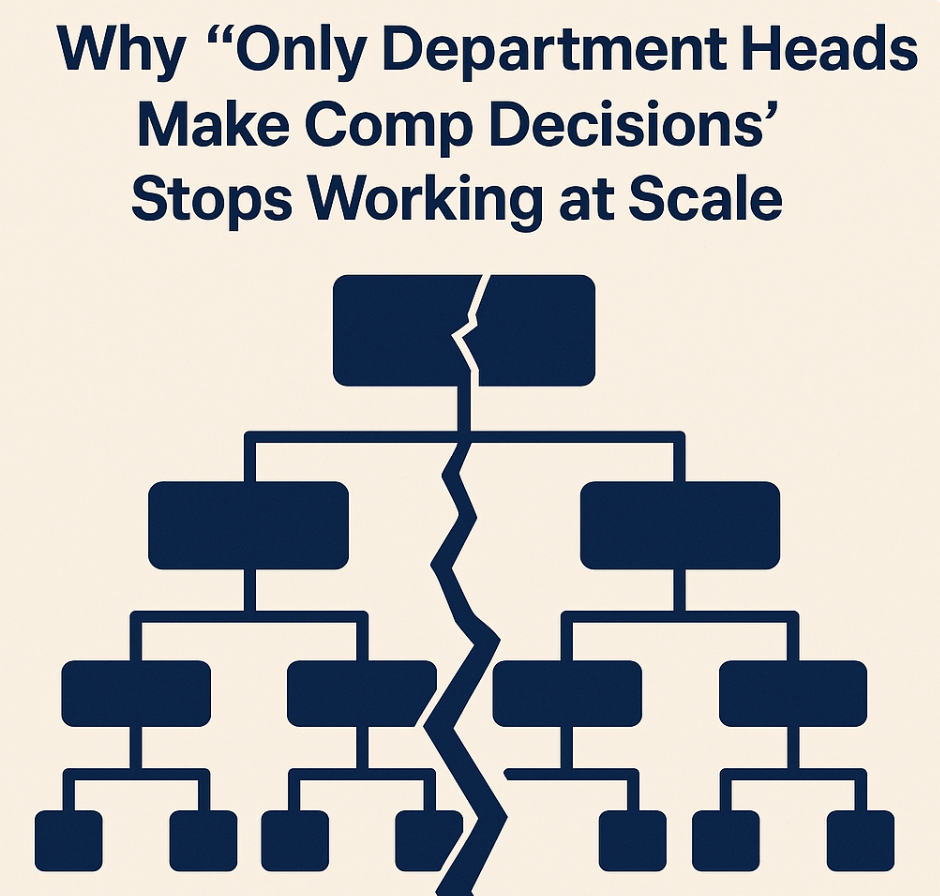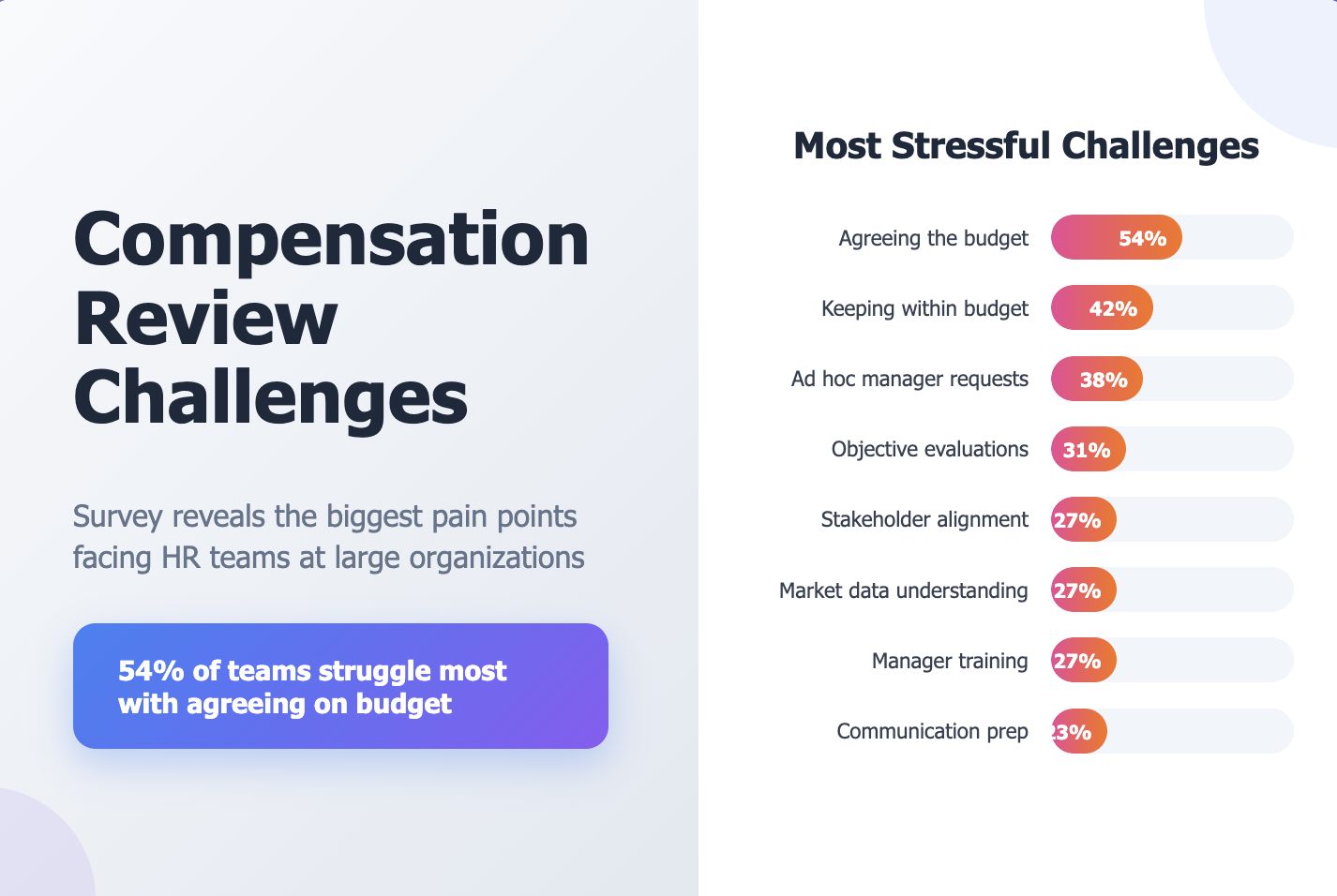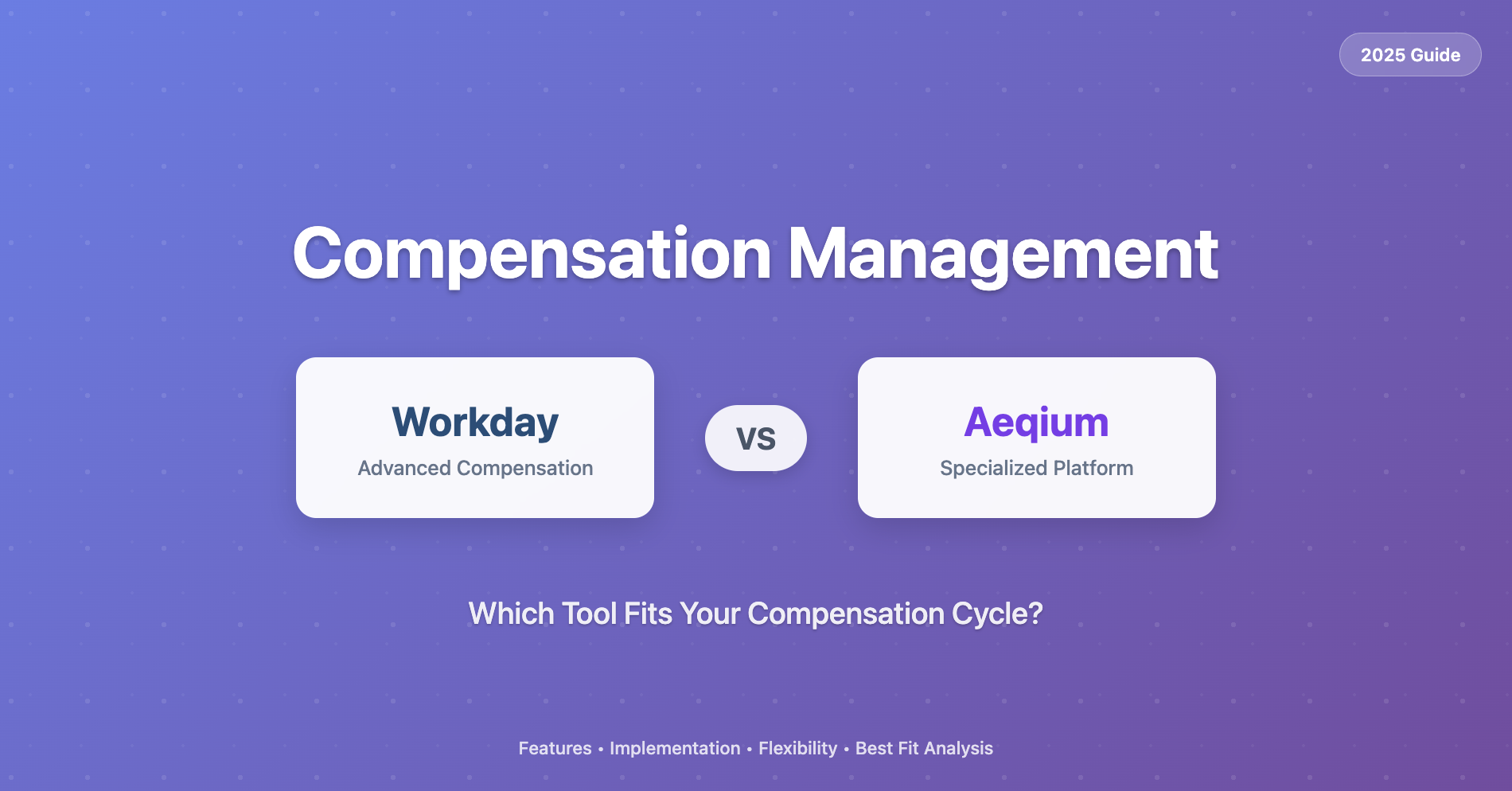Why “Only Department Heads Make Comp Decisions” Stops Working at Scale

The Most Common Self-Deception in Compensation Planning
One of the most common things I hear from HR leaders at companies with 500 or more employees is this:
“We just have department heads make all the compensation decisions.”
At smaller organizations, this model can make sense. I have heard the rationale many times:
- Budgets are held at the department head level
- Managers are not trained on compensation planning
- Including more people would create chaos in the process
These are valid points. But once your organization grows, they stop holding up.
Why the Policy Breaks Down as You Scale
Here is the reality. At companies of a certain size, department heads are not the ones making individual compensation decisions for every employee in their organization.
They might say they are. But what they are actually doing is copying data into spreadsheets and emailing it to their managers for input.
I have heard this directly from those leaders.
The truth is simple. No senior leader wants to make salary and bonus recommendations for 50 or 100 employees on their own. Nor do they want to be responsible for the fallout of excluding their managers from the process.
The Hidden Risk: You Are Not in Control of the Real Process
If you are an HR or Total Rewards leader and your official process assigns all comp decisions to department heads, there is a high chance that a parallel, informal process is happening behind the scenes.
And that process may be putting your organization at risk. Consider the following:
- Compensation data is being shared through untracked spreadsheets
- Lower-level managers are giving input without proper context or training
- Department heads are left on their own to reconcile all of it
Just because your team is not directly experiencing the chaos does not mean it is not happening. It just means it is hidden from view.
What You Can Do About It
If your company has reached this stage, it is time to adapt. Here are a few steps to start moving in the right direction:
- Acknowledge reality. Accept that your current policy may not reflect what is actually happening.
- Expand visibility. Begin including more managers in compensation training and communications.
- Create transparency. Even if you do not ask for input from all managers, sharing context and rationale improves alignment.
- Evaluate your tools. If spreadsheets are holding you back, the right software can simplify participation without chaos.
Final Thought
When companies scale, processes need to scale with them. Compensation planning is no exception. If you are relying on a model that worked at 100 employees, but now have 500 or more, it is worth asking whether your current structure still serves you.
How do you decide which managers participate in compensation planning? At what point is it too much for one person to handle alone?
If the answer leads you to cutting more spreadsheets, Aeqium can help.
Take the product tour →




